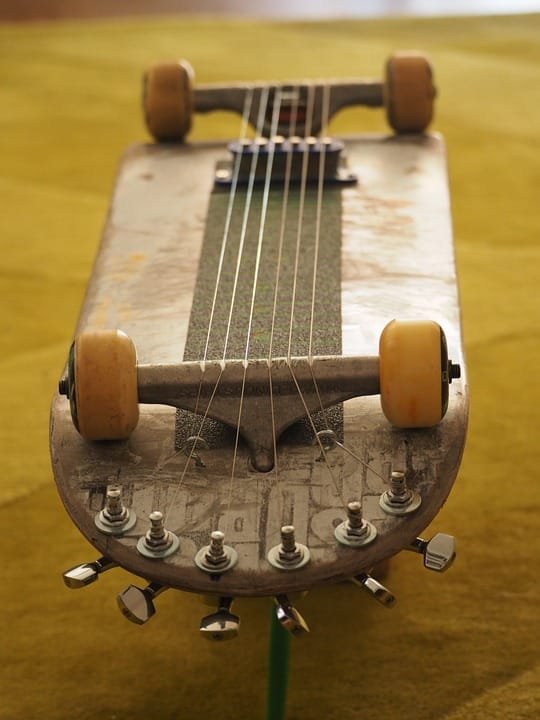Revolutionizing Style: The Top Ethical Fashion Trends You Need to Know
As I reflect on my journey into sustainable fashion, I’m reminded of the profound impact it’s had on my life. From discovering eco-friendly brands to embracing the thrill of thrift shopping, I’ve learned that fashion can be a powerful tool for positive change. In this article, I’ll share my experiences and insights on the top ethical fashion trends that are revolutionizing the industry.
The Problem with Fast Fashion
Fast fashion has become a dominant force in the industry, with millions of garments being produced and discarded each year. The consequences are staggering: the fashion industry is responsible for 10% of global carbon emissions, 20% of global wastewater, and 15% of global land use (Ellen MacArthur Foundation, 2019). The social impact is equally concerning, with workers in the industry often facing poor working conditions, low wages, and limited job security.
[Image: A graphic illustrating the environmental and social impact of fast fashion]The Power of Sustainable Fashion
Sustainable fashion, on the other hand, is a movement that prioritizes the well-being of people and the planet. It’s about designing, producing, and consuming clothing in a way that minimizes waste, reduces carbon emissions, and promotes fair labor practices. By adopting sustainable fashion practices, we can reduce our environmental footprint, support local communities, and promote a culture of creativity and self-expression.
Eco-Friendly Materials
One of the most significant advancements in sustainable fashion is the development of eco-friendly materials. From recycled polyester to organic cotton, these materials offer a more sustainable alternative to traditional fabrics. Brands like Patagonia and Reformation are leading the charge, incorporating eco-friendly materials into their designs.
[Image: A photo of a Patagonia jacket made from recycled polyester]Slow Fashion
Slow fashion is another key element of sustainable fashion. It’s about embracing a more mindful approach to fashion, where quality is prioritized over quantity. This means investing in timeless pieces, repairing and maintaining your clothes, and avoiding fast fashion’s "throwaway" culture.
[Image: A photo of a person repairing a pair of jeans]Upcycling and Repurposing
Upcycling and repurposing are creative ways to give old clothes a new life. From turning old t-shirts into reusable bags to transforming vintage dresses into one-of-a-kind accessories, upcycling is a fun and innovative way to reduce waste.
[Image: A photo of a person upcycling an old t-shirt into a reusable bag]Tips for Sustainable Fashion
So, how can you get started with sustainable fashion? Here are a few tips to help you transition to a more eco-friendly wardrobe:
- Research ethical fashion brands and shop from them
- Thrift shop and repurpose old clothes
- Invest in timeless, high-quality pieces
- Repair and maintain your clothes
- Avoid fast fashion’s "throwaway" culture
Brands Leading the Way
Several brands are paving the way for sustainable fashion. Here are a few examples:
- Patagonia: Known for their eco-friendly materials and sustainable manufacturing practices
- Reformation: Offers a range of eco-friendly materials and sustainable production methods
- Everlane: Transfers transparency to their supply chain and pricing
- People Tree: A fair trade and organic clothing brand that supports marginalized communities
Conclusion
Sustainable fashion is a movement that’s not just a trend – it’s a commitment to conscious living and self-expression. By adopting eco-friendly materials, slow fashion, and upcycling practices, we can reduce our environmental footprint and promote a culture of creativity and sustainability. Remember, every small change counts, and by making informed choices, we can revolutionize the way we think about fashion.
Frequently Asked Questions
Q: What is sustainable fashion?
A: Sustainable fashion is a movement that prioritizes the well-being of people and the planet. It’s about designing, producing, and consuming clothing in a way that minimizes waste, reduces carbon emissions, and promotes fair labor practices.
Q: What are some eco-friendly materials used in sustainable fashion?
A: Some eco-friendly materials used in sustainable fashion include recycled polyester, organic cotton, and Tencel.
Q: How can I get started with sustainable fashion?
A: Start by researching ethical fashion brands, thrift shopping, and investing in timeless, high-quality pieces. You can also try upcycling and repurposing old clothes to reduce waste.
Q: What are some benefits of sustainable fashion?
A: Sustainable fashion promotes a culture of creativity and self-expression, reduces environmental waste, and supports local communities and fair labor practices.
References
Ellen MacArthur Foundation. (2019). A New Textiles Economy: Redesigning Fashion’s Future.








Leave a Reply